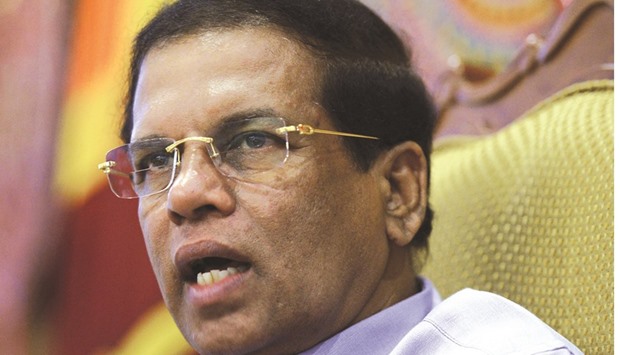The International Monetary Fund said the formal approval of a 36-month loan under its Extended Fund Facility (EFF) will also help Sri Lanka secure another $650mn in other multilateral and bilateral loans.
President Maithripala Sirisena's administration sought an IMF bailout immediately after taking power in January last year, but the fund turned down the request, saying the country's reserves were at a comfortable level then.
However, the government faced a balance of payments crisis after it implemented its election pledges of higher public sector salaries and lower fuel and utility prices.
The first instalment of $168mn out of the $1.5bn will be made immediately, the IMF said.
It noted that Sri Lanka's economy was beginning to show signs of strain from an increasingly difficult external environment and said Colombo must increase tax collection and ensure exchange rate stability.
"Tougher external conditions in the wake of China rebalancing and unwinding of unconventional monetary policies were not outside Sri Lanka's past experience.
"However, spillovers were magnified by domestic imbalances, as evidenced by higher volatility around the two elections (in 2015)," the IMF said referring to the government increasing salaries and reducing prices as part of election pledges.
The IMF said the bailout also provides for reform.
"The new government's economic agenda, supported by the EFF, provides an important opportunity to re-set macroeconomic policies, address key vulnerabilities, boost reserves, and support stability and resilience," the IMF said.
Sri Lanka enjoyed a blistering economic growth rates averaging more than 8.0% for two years after a prolonged civil war ended in 2009.
But the pace of expansion has since slowed, falling to 4.8% in 2015, down from 4.9 in the previous year, according to official data.
In 2009, Sri Lanka received $2.6bn from the IMF to boost its financial reserves, which dropped below $1bn at the height of fighting between Tamil Tiger rebels and troops.

